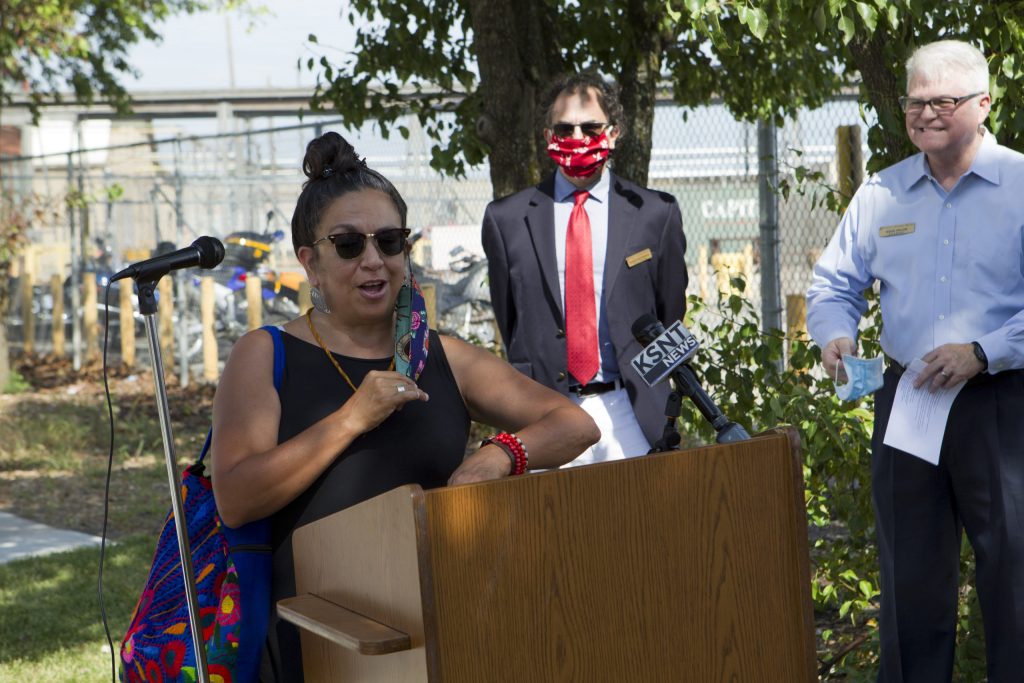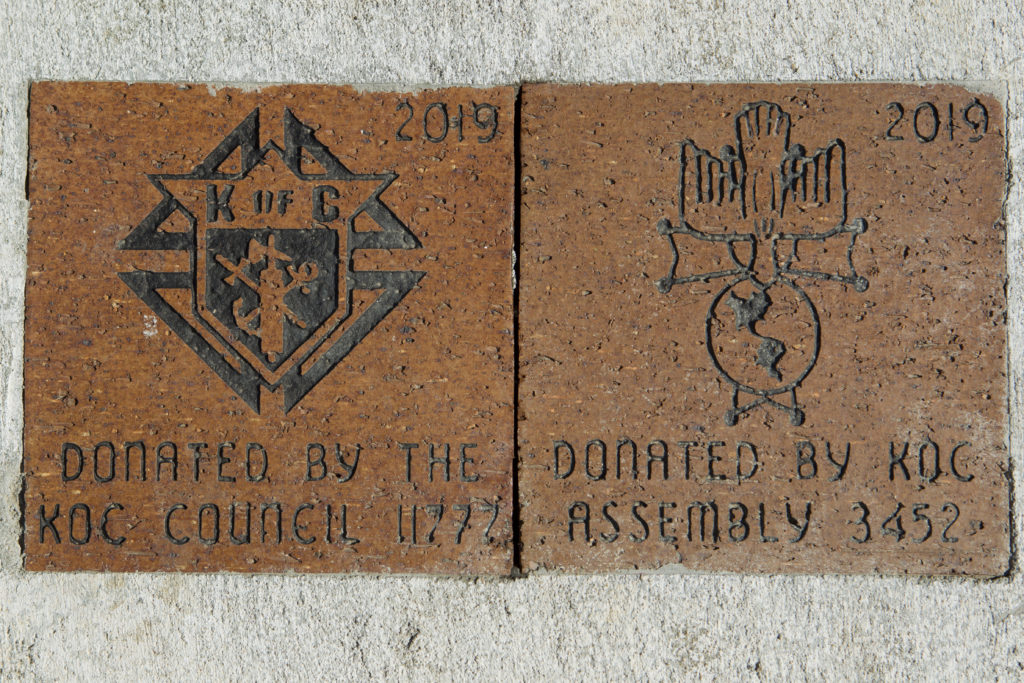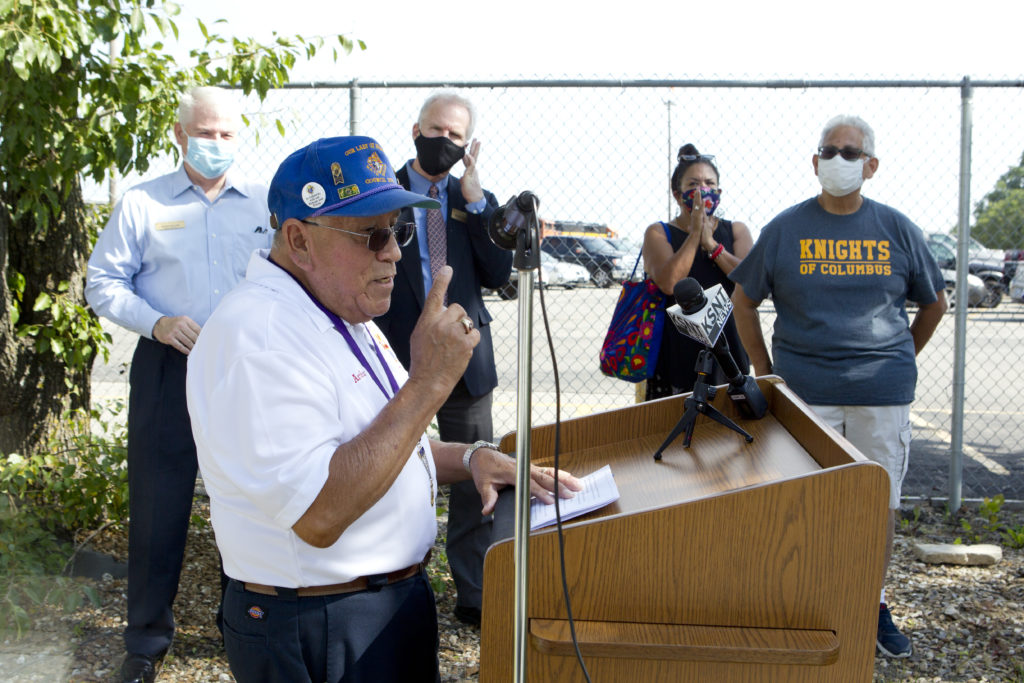
by Marc and Julie Anderson
mjanderson@theleaven.org
TOPEKA — Two years ago, Arthur Alcala was watching the evening news when an inspiration struck.
That night’s local news mentioned an anonymous donor who provided money to erect a bus shelter near downtown Topeka.
Seeing that story, Alcala said, left him wondering if a similar bus shelter could be placed in the city’s Oakland neighborhood. He had just the bus stop in mind.
Just across the Branner Street bridge, a large archway welcomes visitors to the Oakland neighborhood. Just past the archway is a bus stop that Alcala recalled at one time did not have a bench — merely a sign where people stood waiting for the bus.

Although Alcala often drives by the stop located near Seward and Chandler streets, a block from his parish of Our Lady of Guadalupe, he didn’t give it much thought until after seeing the news story.
“I used to drive by all the time in the wintertime and summertime and see people standing there,” he said. “I didn’t really give it much thought, but I said, ‘It’s got to be cold or hot standing there, waiting for the bus.’
“When I saw this on television in May or June of 2018, I called the bus company and I inquired about it.”
Specifically, he asked about the cost. He learned the price tag came in at less than $5,000; $4,500 to be exact.
As a member of the Knights of Columbus Council 3452 as well as the fourth-degree Knights San Juan Diego Assembly 3452, Alcala decided to approach his brother Knights about funding a shelter. In August 2018, he first mentioned the idea at membership meetings. Both groups received the idea enthusiastically, formally approving it in December. Both organizations would pay half.
“So, that’s what we did,” Alcala said. “We went 50/50, with the idea that if one group didn’t want to do it, then all bets were off.”

After receiving approval from both organizations, Alcala started deeper discussions with the Topeka Metro, the city’s bus operator.
“So, I ran with it,” he said. “I had already been talking to the bus company, and I said, ‘Listen, this is what we can do. Let’s try and make it work.’”
Meanwhile, Knights raised funds by volunteering at Hummer Sports Park that serves primarily as an athletic venue for the Topeka Public School District. The district includes three high schools, all of whom use the venue’s facilities. As volunteers, Knights sell and serve concessions at football games, baseball or softball games, and the occasional swim meet.
“Currently, we are volunteers at Hummer Sports Park, and we are receiving for our volunteer work a donation back from Hummer,” said Lino Munoz, faithful comptroller to the Knights of Columbus assembly. “It helps us to raise the funds that we need to do the work that we can do here. We do what we can as volunteers.
“And, of course, it’s not something they have to provide, but they do and we’re grateful for that.”

While fundraising continued, Alcala made phone calls to check on the project’s progress, never dreaming how long the process could take.
“I didn’t realize everything they had to do,” Alcala said.
The Topeka Metro created plans, obtained approval from the city of Topeka, conducted soil tests and more — all while ensuring governmental regulations and statutes were followed at the local, state and federal levels. Actual construction didn’t begin until late 2019.
At times, Alcala said he’d grow a bit discouraged by the project’s slow speed, especially when others asked him about it. Once work began, though, it seemed nothing could stop it. Well, almost nothing.
Earlier this year, a driver hit the bus stop’s bicycle rack but not the shelter itself. Still, one of the shelter’s panes was damaged. Then the pandemic hit, slowing down repair efforts, not to mention any official ceremony celebrating the project’s completion.
But on June 26, Alcala and a dozen other Knights participated in the shelter’s official dedication with city of Topeka officials and representatives from the Topeka Metro.
“It took a while, but we finally got it done,” said Alcala, adding he’s grateful for the Knights’ support.
“Without them,” he said, “we couldn’t have done it.”






